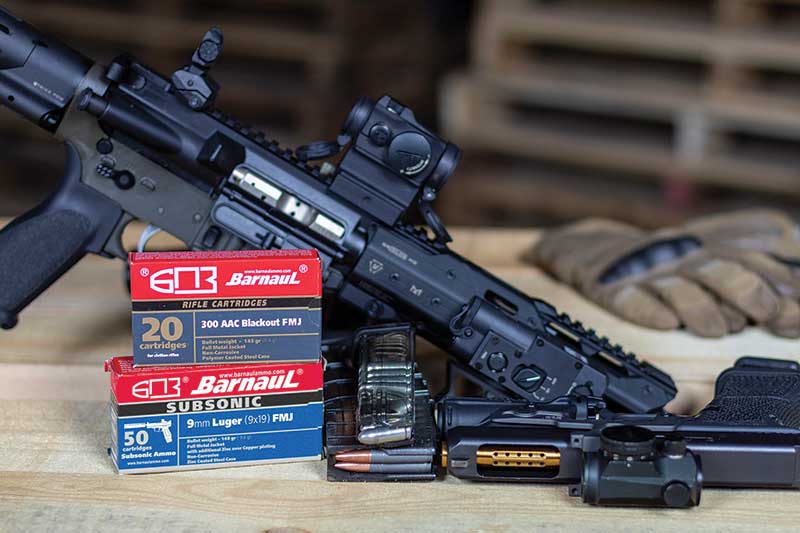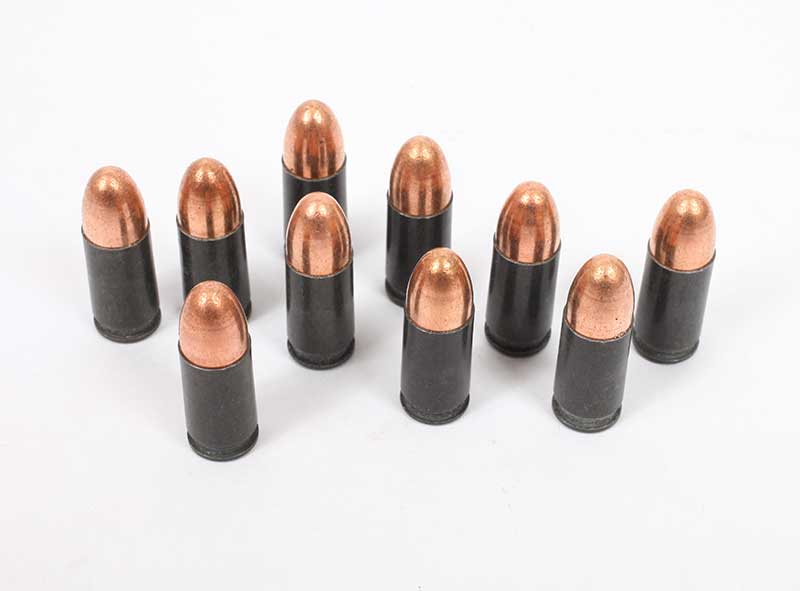Ban On Russian
Ammo Imports:
More Hurtful To Russia
Or U.S. Sportsmen?
Aug. 20, the U.S. Departments of State, the Treasury, Justice and Commerce announced a second round of sanctions on Russia — on what was the one-year anniversary of the poisoning of Russian opposition figure Aleksey Navalny.
Of significant importance to the U.S. firearms industry: these additional sanctions include the banning of imported Russian firearms and ammunition.
A fact sheet published by the State Department elaborated: “New and pending permit applications for the permanent importation of firearms and ammunition manufactured or located in Russia will be subject to a policy of denial.” These sanctions are due to take effect upon the publication of a Federal Register notice, expected Sept. 7, and will remain in place for a “minimum” of 12 months.
Though the full extent of these sanctions cannot be ascertained until after the notice publishes on the Federal Register, it is of major concern to dealers and consumers — as demand continues to remain at peak levels.
Shooting Industry sat down with Charlie Brown, owner of MKS Supply and importer of Russian-based BarnauL Ammunition, to glean insights on how this move will impact an already turbulent market.
Targeting Russia Or U.S. Sportsmen?
How the poisoning of on an opposition figure and the banning of ammunition from that country are related remains to be seen. Brown provided his reaction.
“It was shocking to us, we didn’t see it coming at all — realistically, it’s not a sanction, it’s a well-planned opportunity to attack a viable business in the U.S,” he said. “It’s going to hurt a lot more sportsmen and businesses in the U.S. than it is Russian nationals.”
Over the past few years, Brown estimates 35–40% of all ammo sold in the U.S. is Russian steel-cased ammo — and its absence will leave a significant hole to fill.
“We’ve already seen pricing move up since the announcement,” he noted. “And, it’s going to cause standard U.S. brass ammo — and pretty much anything else being imported from other countries — to be more expensive for the U.S. shooter to afford.”

MKS Supply has been importing BarnauL Ammunition since 2019, gradually building up
its lineup for U.S. shooters. According to MKS Owner Charlie Brown, they were looking to expand its presence
in the U.S. market with new rifle calibers and components. "All the research we’ve done on these new calibers
is gone by the wayside now," he said.
MKS Supply began importing BarnauL in 2019. Brown previously shared with SI one of the positive byproducts of the buying surge that began last March was the brand’s products were changing the preconceived notions shooters had of using steel-cased ammunition. The proposed sanctions have wiped away years of effort.
“It’s very frustrating, we’ve worked hard over the years and have spent millions of dollars in marketing and everything else to build the product line and the brand, and there’s no regard for that. It’s disheartening,” he said.
The sanctions have also scuppered MKS’ efforts to bring in new caliber options and a reloading line, Brown added.
“We had several new calibers we were developing with BarnauL — popular rifle calibers to help consumers shoot some more, and a full line of components scheduled to come in. At this point, however, none of that is going to happen,” he said. “All the research we’ve done on these new calibers is gone by the wayside now.”
Long-Term Effects
If this ban on Russian ammunition is upheld, it will significantly impact the U.S. ammunition segment — with rising costs one byproduct. However, it could change the international landscape with other countries ramping up production to compete in the U.S. market.
“Turkey might step up to the plate because they probably have the ability to produce, and perhaps Serbia,” Brown predicted. “It’s going to take a little while for them to ramp up, though. Components and raw materials are pretty tough right now.”
Once the Federal Register notice is published, Brown shared then the industry will be able to evaluate the full extent of the sanctions.
“This is a moving target in a very fluid situation. Until we get to September 7, we really don’t know what kind of claws and teeth this really will have — once it gets put on the books, then we’ll know for sure,” he concluded.
In a period defined by its volatility and uncertainty, these sanctions represent another wrinkle impacting business for industry manufacturers and storefront dealers. Stay tuned for a follow-up report once the full extent of the sanctions are confirmed.
How is your business being impacted? Let us know: comments@shootingindustry.com.





